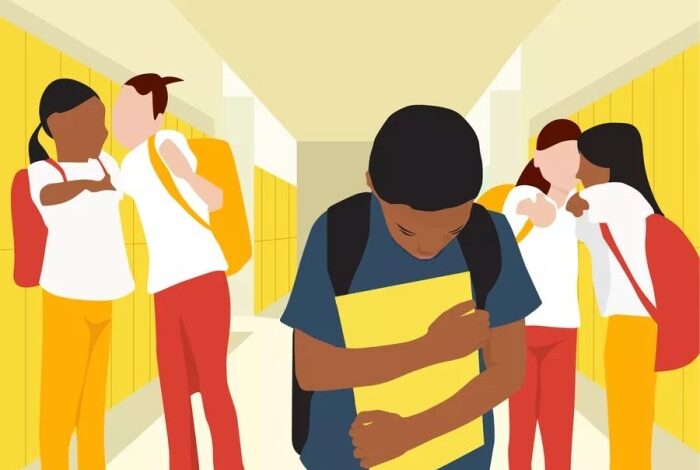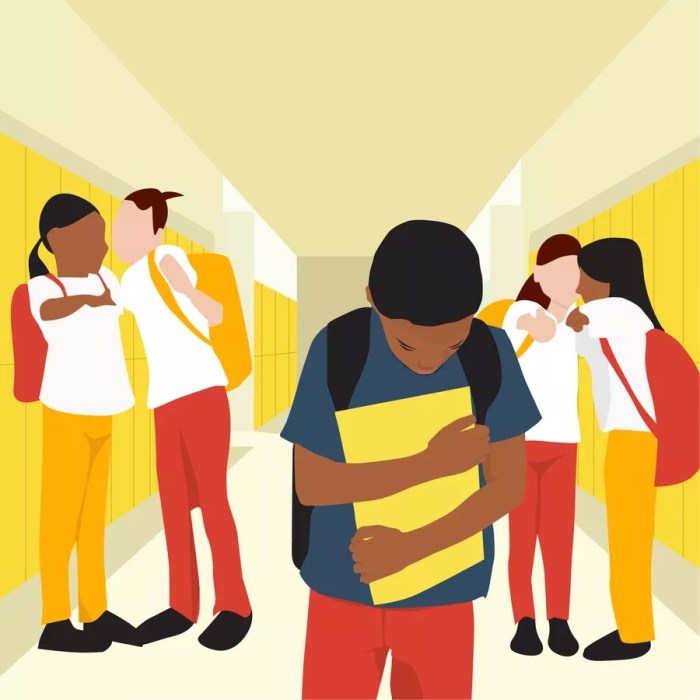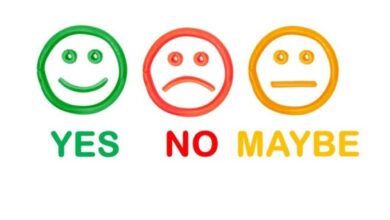
How to Deal with a Bully: A Guide for Victims and Bystanders
How to deal with a bully is a question that unfortunately many people have to face. Bullying can take many forms, from verbal abuse and physical aggression to cyberbullying and social exclusion. The impact of bullying can be devastating, leading to feelings of anxiety, depression, and even suicidal thoughts.
But it’s important to remember that you’re not alone, and there are things you can do to protect yourself and fight back against bullies.
This guide will explore the different types of bullying, the effects it can have on victims, and strategies for dealing with bullies. We’ll discuss how to recognize bullying behavior, how to stay safe, and how to build resilience. We’ll also delve into the importance of assertive communication, seeking support from trusted individuals, and the role of bystander intervention in stopping bullying.
By understanding bullying and the tools available to combat it, we can create a more positive and supportive environment for everyone.
Preventing Bullying: How To Deal With A Bully

The most effective way to combat bullying is to prevent it from happening in the first place. Creating a positive and supportive environment where everyone feels valued and respected is crucial. This involves fostering a culture of inclusivity and promoting positive social interactions.
Creating a Culture of Respect and Inclusivity
A culture of respect and inclusivity is the foundation for preventing bullying. It emphasizes the importance of treating everyone with kindness, empathy, and understanding, regardless of their differences. This culture is built on the principles of:
- Empathy and Understanding:Encouraging individuals to step into others’ shoes and understand their perspectives. This helps foster compassion and reduces prejudice.
- Diversity and Inclusion:Celebrating the unique qualities of each individual and creating a welcoming environment for everyone. This involves recognizing and valuing different backgrounds, cultures, beliefs, and abilities.
- Respect for Boundaries:Teaching individuals to respect personal space and boundaries, both physically and emotionally. This helps prevent unwanted interactions and promotes a sense of safety.
Promoting Positive Social Interactions and Conflict Resolution, How to deal with a bully
Positive social interactions and effective conflict resolution skills are essential for creating a harmonious environment. Strategies for promoting these include:
- Social-Emotional Learning Programs:These programs teach students about empathy, self-awareness, relationship skills, and responsible decision-making. They equip individuals with the tools to navigate social situations constructively.
- Peer Mediation Programs:These programs train students to act as mediators in conflicts between peers. They help students develop communication skills, conflict resolution strategies, and a sense of responsibility for creating a positive school environment.
- Positive Reinforcement:Recognizing and rewarding positive behavior, such as kindness, empathy, and cooperation, encourages students to continue engaging in these actions.
School Programs and Community Initiatives
Many schools and communities implement programs and initiatives aimed at preventing bullying. These programs focus on:
- Anti-Bullying Campaigns:These campaigns raise awareness about bullying, its effects, and strategies for prevention. They often involve student-led initiatives, posters, and presentations.
- Character Education Programs:These programs emphasize the development of positive character traits such as empathy, respect, responsibility, and fairness. They aim to foster a culture of kindness and inclusivity.
- Bystander Intervention Programs:These programs empower students to intervene when they witness bullying. They teach students how to safely and effectively support the victim and discourage the bully’s behavior.
The Role of Education and Awareness
Education and awareness play a crucial role in preventing bullying. By providing information and fostering understanding, we can empower individuals to:
- Recognize Bullying:Understanding the different forms of bullying, including physical, verbal, social, and cyberbullying, is essential for identifying and addressing the problem.
- Understand the Impact:Educating individuals about the negative psychological and emotional effects of bullying on both victims and perpetrators is critical for fostering empathy and promoting responsible behavior.
- Take Action:Providing individuals with strategies for preventing bullying, intervening when they witness it, and seeking help when they are being bullied empowers them to create a safer and more supportive environment.
Dealing with a bully can be tough, but remember you’re not alone. Sometimes, it helps to focus on something positive, like a countdown to a special event. Check out this DIY fabric countdown links tutorial, it’s a fun and creative way to mark the days! When you’re feeling overwhelmed by negativity, remember that you have the strength to stand up to bullying and create your own happy moments.
Dealing with a bully can be tough, but remember, you’re not alone. Sometimes, the best way to cope is to find healthy ways to release your frustration. Maybe try making some edible apple cups – the process of carving and baking can be surprisingly therapeutic.
Once you’ve channeled your energy into something creative, you’ll feel more empowered to face whatever challenges come your way, including those bullies.
Dealing with a bully can be tough, but remember they often pick on those they perceive as weaker. Sometimes, it’s about how you present yourself. If you can learn to can you spot the difference between genuine confidence and arrogance, you might find yourself less of a target.
It’s not about changing who you are, but about projecting an aura of self-assurance that discourages bullies from seeing you as easy prey.





